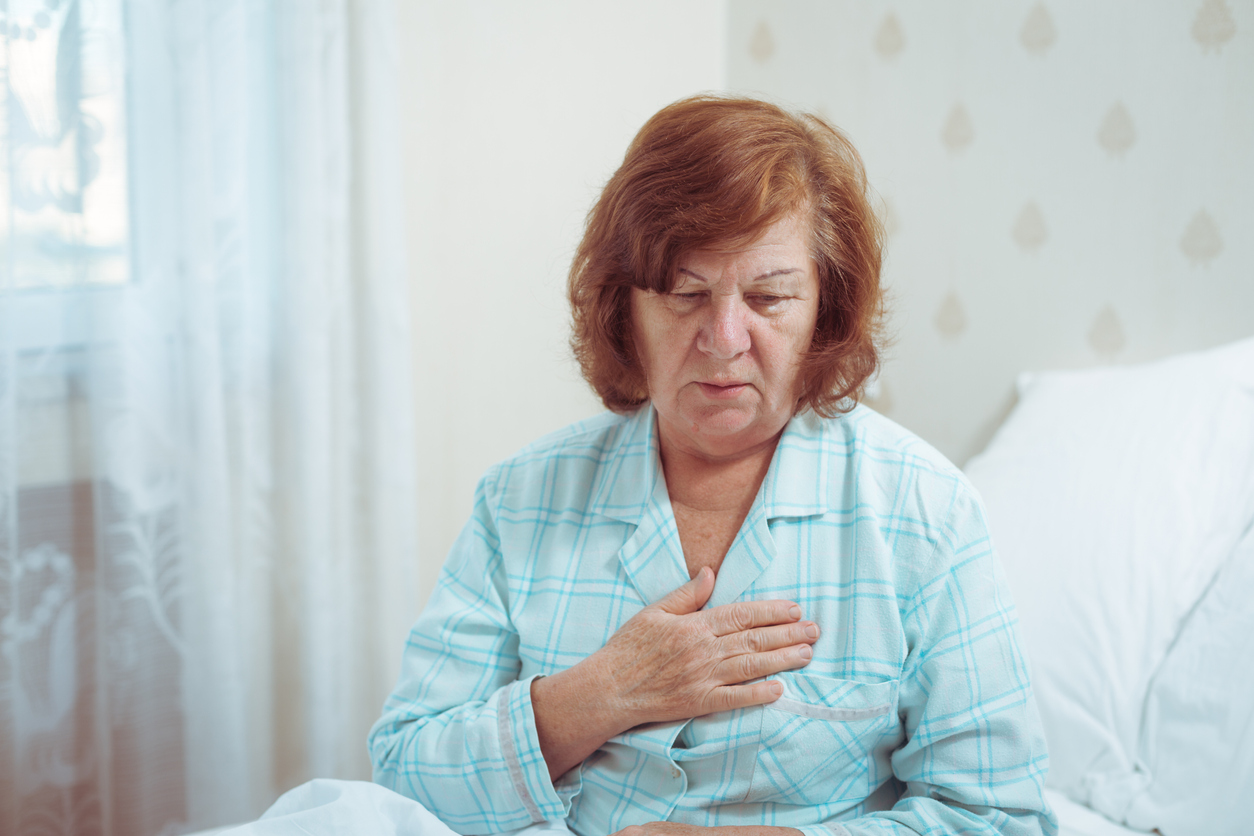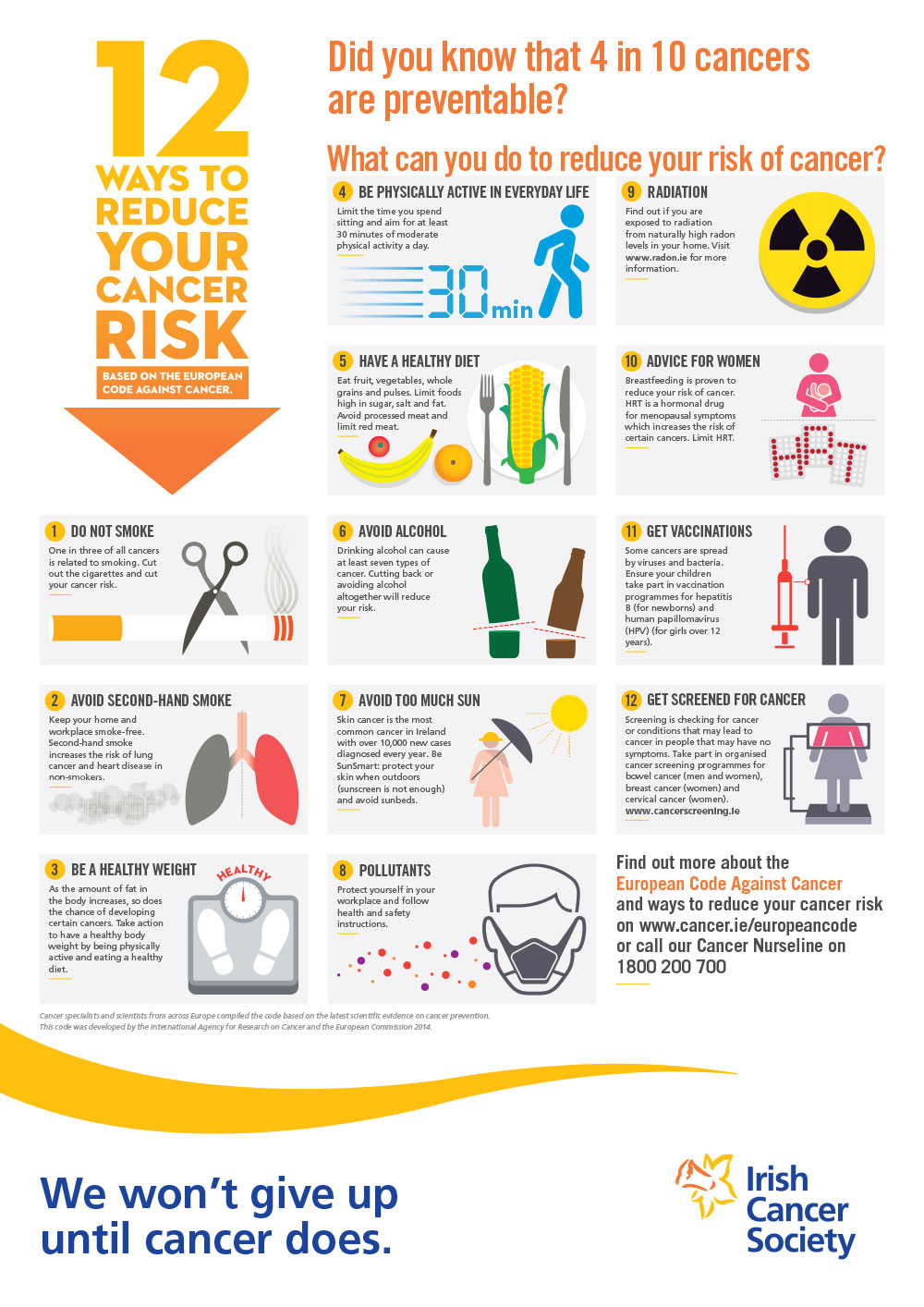What increases my risk of breast cancer?

About risk factors
- Risk factors increase your chance of getting breast cancer.
- There are risks we can change, such as how much alcohol we drink, and risks we can't change, such as our age.
- Having a risk factor doesn't mean you will get breast cancer.
- Sometimes people with no risk factors get breast cancer.
- If you’re worried, talk to your GP or talk to one of our cancer nurses. Call our Support Line on 1800 200 700 or visit a Daffodil Centre.
Things we can change
- Alcohol: Drinking alcohol increases your risk of breast cancer. Alcohol causes around 1 in 13 breast cancers diagnosed in Ireland each year. You can reduce your risk by not drinking alcohol. The less you drink the lower your risk.
- Weight: Staying a healthy weight decreases your risk of breast cancer. If you are overweight, even modest, sustained weight loss can lower your breast cancer risk.
- Physical activity: Being physically active reduces your risk of breast cancer. Try to do at least 150 minutes of moderate or 75 minutes of vigorous physical activity a week. Moderate activity makes you a little warm and out of breath, increases your heart rate, and you can talk but not sing. Vigorous activity raises your heart rate, makes you sweat and feel out of breath, and barely able to talk.
- Breastfeeding: Breastfeeding decreases your risk of breast cancer. The longer you breastfeed over the course of your life, the more you reduce your breast cancer risk.
- Hormone replacement therapy (HRT): HRT uses drugs to help manage the symptoms of menopause. Some types of HRT may increase the risk of breast cancer, but the increased risk is small and the benefits may outweigh the risks. Talk to your GP about your options.
- Oral contraceptive pill: The oral contraceptive pill (OCP) can increase your risk of breast cancer. Each person's risk will be different. Talk to your GP about what's right for you.
- Eating habits: A balanced healthy diet can help you to maintain a healthy body weight, which decreases the risk of cancer.
- Smoking: While it's not clear if smoking tobacco increases breast cancer risk, we do know that smoking increases the risk of at least 15 other types of cancer. Quitting tobacco products reduces cancer risk.
Things we can't change
- Age: Your risk of breast cancer increases as you grow older. Breast cancer is most common in women over 50, but younger women can get breast cancer too.
- Family history and inherited genes: Your risk of breast cancer is increased if a close member of your family (your mother, sister or daughter) had it, especially if they were younger than 50, or if more than one close relative was affected. If you have a strong family history of breast cancer (including male breast cancer) or related cancers like ovarian cancer, there might be a faulty gene in your family that increases your risk of breast cancer. For example, a faulty BRCA1 or BRCA2 gene. Faulty genes cause about 5–10 in every 100 breast cancers.
- Dense breast tissue: If your breasts have more non-fatty (dense) tissue, your risk of breast cancer is a bit higher than if you have less dense breasts. You can’t tell your breast density by feeling or looking at your breasts. Researchers are working to try and answer these questions, learning more about the link between breast density and breast cancer.
- Age when periods started and stopped: Your risk is higher if you started your periods before age 12 or went through menopause after age 55.
- Children: Not having given birth or giving birth for the first time after age 30 slightly increases your risk.
- Previous breast disease: Being diagnosed with breast cancer or atypical ductal hyperplasia (ADH) increases your risk of developing breast cancer in the future.
- Radiotherapy: Having had radiotherapy to your chest area in the past increases your risk.
Reducing your risk of breast cancer
The most important things you can do to reduce your risk of breast cancer are to:
- Check your breasts every month to spot any abnormal changes.
- Take part in the BreastCheck screening programme. All women and people with breasts aged 50 to 69 are invited to have a free mammogram (breast X-ray) every 2 years.
- Talk to your GP about earlier screening if you have a family history of breast or ovarian cancer.
- Limit alcohol: The more you cut down, the more you can reduce your risk. Limit your breast cancer risk by drinking no more than one standard drink a day.
- Keep a healthy weight for your height.
- Stay active: Women who are physically active have a lower risk of breast cancer than less active women. Try to do at least 150 minutes of moderate or 75 minutes of vigorous physical activity a week. Moderate activity makes you a little warm and out of breath, increases your heart rate and you can talk but not sing. Vigorous activity raises your heart rate and makes you sweat and feel out of breath.
- Stop smoking.
- Breastfeed your baby if you can: The longer you breastfeed, the more you reduce your breast cancer risk. It’s best to breastfeed your baby for at least the first six months, if possible.
For more information
Phone
1800 200 700



